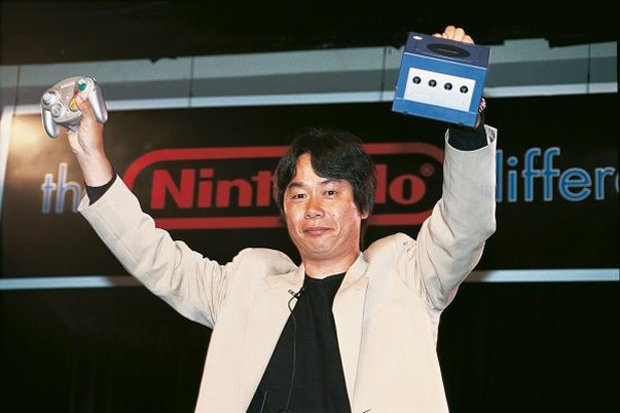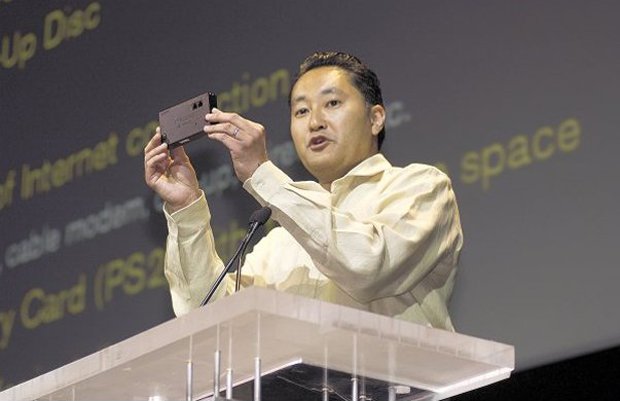ClassicRadar: The best history of E3 on the internet
As long as you're only interested in the shows that took place between 1995 and 2006
2001: The Nintendo difference
After the dismal performance of Dreamcast, Sega had already announced that it was dropping out of the console race and 2001 was the first E3 that it hadn't attended in the capacity of hardware maker. However, it did show up with some new multiformat games, among them Super Monkey Ball (GameCube), Jet Set Radio Future (Xbox) and, still keen to feed its loyal fans, Sonic Adventure 2 (Dreamcast).
More than ready to try and fill the void left by Sega was Microsoft and its hulking great Xbox. After announcing console launch details at a special pre-show event it descended on E3 in force, showing off more than 80 games. It also strengthened its list of Xbox exclusives by announcing that movie tie-in A.I., Dead or Alive 3 and Dino Crisis 3 would be joining Halo and Munch's Oddysee on the roster.
Nintendo was also busy hyping its new console - now called GameCube - and delighting gamers by revealing that it would cost $199 - a full $100 cheaper than Xbox. Head of product development Satoru Iwata told the audience at its pre-show conference that the success of GameCube would be down to the "Nintendo difference". This, he described, was four disciplines that made Nintendo special: innovation, quality, characters and heritage.

Above: Shigeru Miyamoto shows off Nintendo's GameCube like a proud father
GameCube was playable for the first time - which was a good job as the only new N64 game was Tony Hawk's Pro Skater 2 - and the crowds were understandably eager to get their hands on one of the 11 titles on display. Among them were Star Wars Rogue Leader, Super Smash Bros. Melee, Pikmin, Luigi's Mansion and... one from Rare that would eventually become an Xbox 360 launch title, Kameo: Elements of Power. The GameCube impressed, but without Mario it just wasn't a party.
Sony, with its PS2 shifting along nicely, still managed to barge into the limelight by revealing its desire to take PS2 online. The Network Adaptor would allow the console to connect to broadband and phone lines, giving users access to the internet. Microsoft's Xbox honcho, J Allard, had this to say about Sony's plan: "We talked to the gamers and asked about surfing the web and downloading stuff. We also said, you can play F1 online and everyone can play a different car on the track. When they made a choice they went with the games."
A staggering 100 new PS2 games were revealed at the show and gamers were impressed by the likes of Stuntman, Final Fantasy X and Jak and Daxter. Support for the original PlayStation continued (65 new games were heading to the old dog) although, in the shadow of its successor, the games were aging fast.
Sign up to the GamesRadar+ Newsletter
Weekly digests, tales from the communities you love, and more
2002: Sony wins it all?
"The console war is over... PlayStation 2 has won." And with 30 million PS2 units sold compared to the four million for GameCube and Xbox it was difficult to argue with Sony America top dog Kaz Hirai's bold statement. Besides bragging about its substantial lead over its competitors, Sony once again gave a concerted push to its Network Adaptor, promising that gamers would be able to surf the net and play PS2 online - with games like Tony Hawk's Pro Skater 4 and TimeSplitters 2 - by the end of the year.
Microsoft also laid out its online plans by revealing its broadband-only Xbox Live service, which it stated would launch worldwide in autumn. Xbox boss J Allard believed the service would be "the world's biggest playground with the coolest rides." With games like Phantasy Star Online, Unreal Championship and Halo 2 flagged as Live compatible, it certainly had appeal. And with Microsoft pledging to spend $2 billion on Xbox support and development over five years, it was apparent that the newest entry to the console race was in for the long haul.
While Sony and Microsoft were both obsessing with online, Nintendo was thrilling attendees with possibly its best line-up of games to date. Mario Sunshine (the first new Mario platformer in six years) and a new Legend of Zelda (later subtitled Wind Waker) were revealed, and Miyamoto was on hand to demo both games at Nintendo's pre-show conference. Rather comically, the legendary developer couldn't find a sword and was unable to complete the Zelda level he was playing. D'oh!

Above: Sony made a big deal of its Network Adaptor and promised gamers that they would be playing PS2 online by the end of the year
Each of the big three were promising large numbers of incoming games. Nintendo promised 100 GameCube titles before the US before the year's end. Microsoft revealed that there were an impressive 300 Xbox games in the pipeline, 200 of which would be out before Christmas. Sony already had 250 PS2 games in shops and predicted that a total of 475 titles would be available by the end of 2003.
Exclusives were also a prize commodity and the console movers each had their own secret weapons. In addition to new Mario and Zelda games, Nintendo paraded Metroid Prime, as well as a fine crop of GBA treats that included the e-Reader add-on and Zelda: A Link to the Past. Xbox rallied its troops with Blinx: The Time Sweeper, Ninja Gaiden and Project Ego (the early name for Fable). But it was Sony's bombshell that GTA: Vice City would be PS2 exclusive that really rocked the show.



